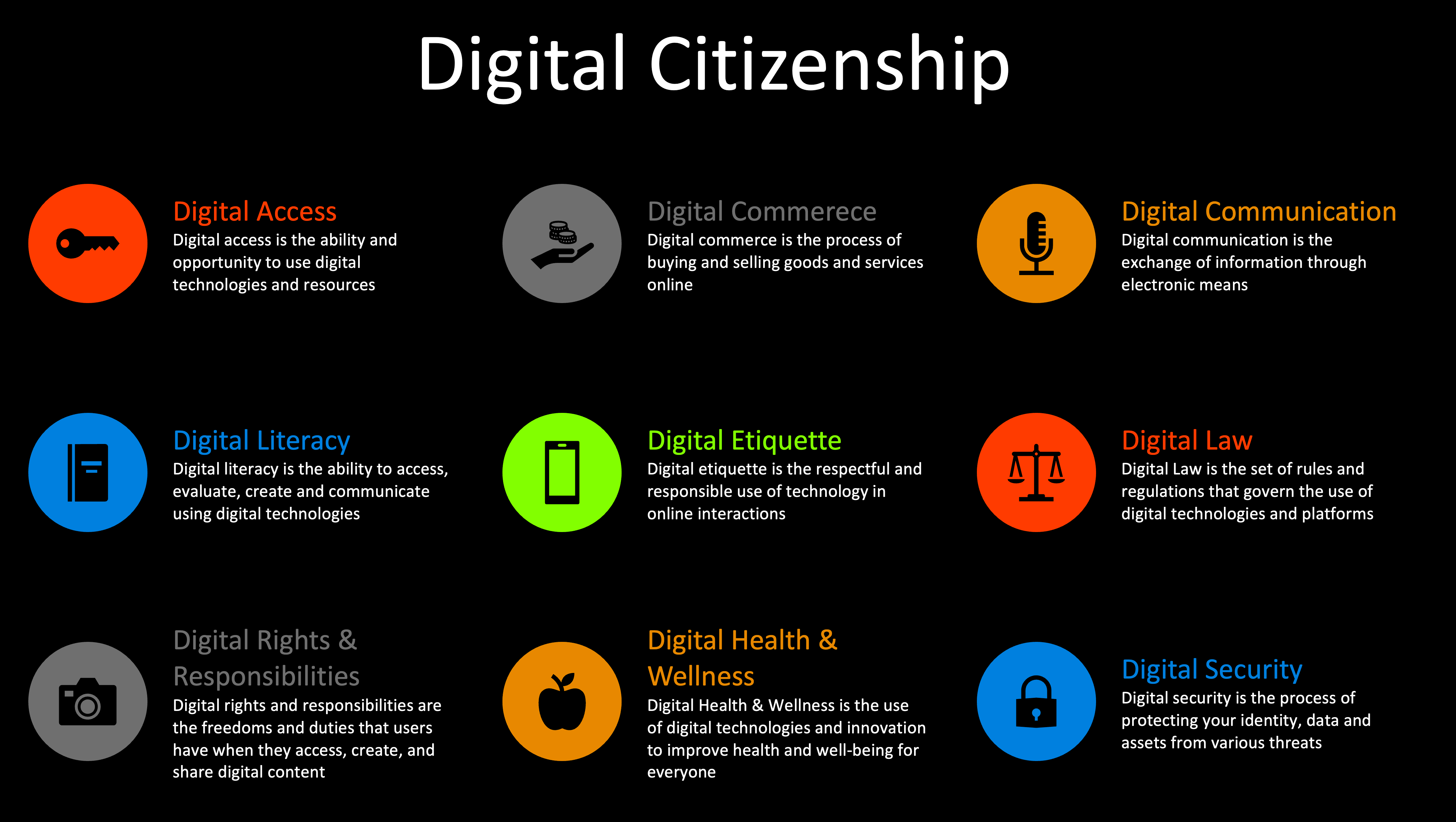Digital Citizenship
Digital Citizenship is the responsible and ethical use of technology and digital media.
It involves being mindful of one's online behavior and the consequences of one's actions and interactions online.
It also involves Digital Literacy, online safety, respect for others, responsible use, and digital participation.
Digital Citizenship is essential in today's world, where digital technologies and online interactions have become an integral part of our daily lives. It is important to foster a culture of responsible and ethical digital behavior to create a safe, inclusive, and empowering online environment for everyone.
Areas of Interest:
- Snippet from Wikipedia: Digital citizen
The term digital citizen is used with different meanings. According to the definition provided by Karen Mossberger, one of the authors of Digital Citizenship: The Internet, Society, and Participation, digital citizens are "those who use the internet regularly and effectively." In this sense, a digital citizen is a person using information technology (IT) in order to engage in society, politics, and government.
More recent elaborations of the concept define digital citizenship as the self-enactment of people’s role in society through the use of digital technologies, stressing the empowering and democratizing characteristics of the citizenship idea. These theories aim at taking into account the ever increasing datafication of contemporary societies (as can be symbolically linked to the Snowden leaks), which radically called into question the meaning of “being (digital) citizens in a datafied society”, also referred to as the “algorithmic society”, which is characterised by the increasing datafication of social life and the pervasive presence of surveillance practices – see surveillance and surveillance capitalism, the use of artificial intelligence, and Big Data.
Datafication presents crucial challenges for the very notion of citizenship, so that data collection can no longer be seen as an issue of privacy alone so that:
We cannot simply assume that being a citizen online already means something (whether it is the ability to participate or the ability to stay safe) and then look for those whose conduct conforms to this meaning
Instead, the idea of digital citizenship shall reflect the idea that we are no longer mere “users” of technologies since they shape our agency both as individuals and as citizens.
Digital citizenship is the responsible and respectful use of technology to engage online, find reliable sources, and protect and promote human rights. It teaches skills to communicate, collaborate, and act positively on any online platform. It also teaches empathy, privacy protection, and security measures to prevent data breaches and identity theft.
External links:
- Digital Citizenship Curriculum — commonsense.org
- The 9 elements of digital citizenship your students need to know — cypherlearning.com
- Digital access
- Digital commerce
- Digital communication
- Digital literacy
- Digital etiquette
- Digital law
- Digital rights and responsibilities
- Digital health and wellness
- Digital security
## ToDo ##
- Support Us... →
- Online safety
- Cyberbullying
- Digital etiquette
- Privacy and security
- Copyright and fair use
- Responsible social media use
- Digital identity
- Digital footprints
- Information literacy
- Digital ethics
- Digital responsibility
- Netiquette
- Digital rights and responsibilities
- Online reputation management
- Digital privacy
- Digital citizenship education
- Cybersecurity
- Cyber hygiene
- Cyber ethics
- Media literacy
